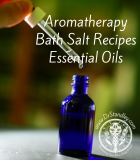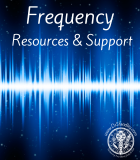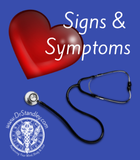| THOUGHT 1
HOW MANY OUNCES OF WATER
SHOULD YOU DRINK IN A DAY? |

Have you ever flushed a toilet without water? Unless it has been in an outhouse, you probably haven't. We have internal filtering and elimination systems that keep toxic substances from building up in our body. Water benefits every system of the body and for the sake of visualization, it flushes our human toilet (the bladder and colon), not to mention it hydrates our body and keeps our skin, hair and nails healthy.
That depends on the size of your glass.
After all, the word glass is descriptive for the material that a container is made from and says nothing about the size or volume of the container.
If the size of your glass container holds 8 ounces, then it is an 8 ounce glass. Same goes for a 16 or 64 ounce glass container.
A true "cup," (as in measuring cup and not a huge mug at coffee shop) is 8 ounces.
- 8 ounces = 1 cup and 16 cups = 1 gallon
- 16 ounces = 2 cups = 1 pint and 8 pints = 1 gallon
- 32 ounces = 4 cups = 1 quart and 4 quarts = 1 gallon
- 128 ounces = 16 cups = 1 gallon
- 33.8140226 ounces = 1 liter
- 1000 ml = 1 liter
- 3.7854118 liters = 1 gallon
Keep in mind that your water intake should be over an entire day and not all at once. Drinking large amounts of water in a short period of time can result in water intoxication thereby flushing out necessary electrolytes. So yes, it is possible to drink too much water.
Many foods, especially raws fruits and vegetables already have water in them so much of your water will come from your food; therefore, it is not necessary to drink eight 8 oz. glasses of water when you are eating water rich foods.
The kidneys of a healthy adult can process fifteen liters of water a day. You are less likely to suffer from water intoxication, if you drink it over the entire day's time as opposed to drinking a huge volume at one time. Most adults need about 3 quarts of fluid each day and a lot of that water will come from food. The typical recommendation is 8 - 12 eight ounce glasses of water a day. More water will probably be necessary for your body if you live where the weather is hot or very dry. Also if you are exercising or if you are taking certain medications you may need more water than what is typical. It is certainly possible to drink too much water and suffer from water intoxication although it is a very uncommon condition. And yes, infants can get water intoxification from too much water through the bottle in a short period of time.
If you are morbidly obese, which refers to patients who are 50-100% or 100 pounds above their ideal body weight, then consulting your physician on this subject would be critically necessary. A BMI (body mass index) value greater than 39 "may be used" to diagnose morbid obesity.
Healthy kidneys remove wastes and excess fluid from the blood. Blood tests show whether the kidneys are failing to remove wastes. Urine tests can show how quickly body wastes are being removed and whether the kidneys are leaking abnormal amounts of protein. (Blood tests - serum creatinine and blood urea nitrogen).
Creatinine (kree-AT-uh-nin) is a waste product that comes from meat protein in the diet and from the normal wear and tear on muscles of the body. Creatinine levels in the blood can vary, and each laboratory has its own normal range. In many labs the normal range is 0.6 to 1.2 mg/dL. Higher levels may be a sign that the kidneys are not working properly. As kidney disease progresses, the level of creatinine in the blood increases.
Urea nitrogen (yoo-REE-uh NY-truh-jen) also is produced from the breakdown of food protein. A normal BUN level is between 7 and 20 mg/dL. As kidney function decreases, the BUN level increases.
Some urine tests require only a few ounces of urine. But some tests require collection of all urine produced for a full 24 hours. A 24-hour urine test shows how much urine your kidneys produce in 1 day. The test is sometimes used to measure how much protein leaks from the kidney into the urine in 1 day. However, protein leakage can also be accurately determined in a small sample of urine by measuring its protein and creatinine concentration.
A creatinine clearance test compares the creatinine in a 24-hour sample of urine to the creatinine level in the blood, to show how many milliliters of blood the kidneys are filtering out each minute (mL/min). The creatinine clearance can also be estimated accurately from the serum creatinine alone using well established prediction equations.
Let's put it this way, iced tea is liquid and most certainly does hydrate your body, BUT . . . iced tea, lemonade and soda pop are typically laced with sugar and your body might say, "hey, thanks for the unnecessary sugar, I'll just change that into fat, thank you very much." These products do hydrate the body, only it is with unnecessary chemicals that will be converted to fat. Water is H2O. This means it is two parts hydrogen and one part oxygen. That's pure nature, going down smooth and cool. I have a 74 oz. jug that I fill with water and drink every day. I drink tap water. I don't buy bottled water. It's an environmental thing. I just can't in Good conscience throw out that many empty plastic bottles a day. I will also use Propel Fitness water packets to flavor my water. I don't buy the Propel bottled water, again because it's an environmental thing with all those plastic bottles, so I buy the powdered packets to add to my water because its like drinking straight vitamin water and tastes Good too.
If you are NOT morbidly obese, more than likely if you begin drinking at least 1/2 your body weight in ounces of water per day, dropping 10 lbs. in one month is a fairly accurate statement. Why? Because you will be eliminating the extra cups of coffee, soda pop and alcoholic beverages that you may normally consume.
If every time you went out to lunch, you only ordered water with your meal and eliminate the iced tea or soda pop, that is a savings of $1.50 per day on lunch alone, plus the .30 extra in tip for the cold drink. That's nearly $10.00 a week, $40.00 a month or $480.00 a year on lunch savings. If every time you sat down for a cup of coffee or ordered an alcoholic beverage and also ordered a glass of water, there would be no room for additional coffee or alcoholic consumption. This would save even more money, save your body the extra calories you'd have to burn and save yourself from nursing a hangover.
Some people have told me that they just don't like the taste of water. I suppose not, if you are used to filling your body with sugar. I don't care, get use to it! All this says is that your taste buds are spoiled and they have to be entertained all the time. Sound kind of childish? This should tell you something.
By all means, when you exercise or if you have a laborious job, then drink at least 20 more ounces of water a day to replenish the fluids that you may be losing at a quicker rate than someone that does not have your lifestyle.
[ back to top ]
**This web site's goal is to provide you with information that may be useful in attaining optimal health. Nothing in it is meant as a prescription or as medical advice. You should check with your physician before implementing any changes in your exercise or lifestyle habits, especially if you have physical problems or are taking medications of any kind.


































